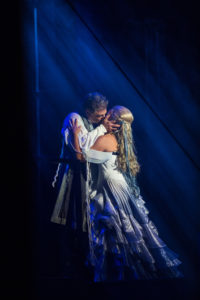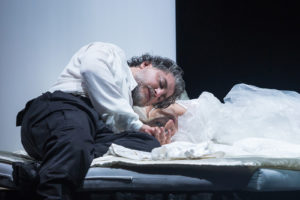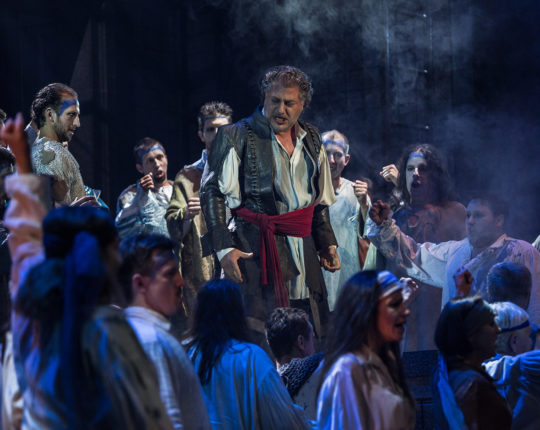Verdi was enraptured with the playwright William Shakespeare, whom he considered »an authority in the field of human heart«, from the earliest stages of his creating. He composed Macbeth, where he found himself trapped by his lack of composing experience, created a rather remarkable opera Falstaff and also dreamt of writing music for Hamlet and King Lear, which unfortunately remained undone. Sixteen years after Aida and the making of his Requiem, he and his librettist Boito conceived together one of the greatest masterpieces, considered by wild consensus of musical connoisseurs as one of the most beautiful operas of all times. The reform of the opera, thoroughly perfected by Wagner, deeply influenced Verdi as well, who was thus guided by its much needed refinement at the time, when he was working on Othello. Thus devised within the synergy between Shakespeare, Boito and Verdi was a typical music drama, which was already warmly acclaimed by the audience at its premiere on 5th February 1887. In comparison to Aida, Verdi’s art in Othello was even more profound and thrifty in the sense of the means he used, as well as more sophisticated and richer in its musical essence.

In the year when the theatres around the world will be devoting their programmes to Shakespearean themes and thus marking and thus marking the 400th anniversary of the playwright’s death, we opted for a production, which will also put forward the topical themes of the present time. Jan Kott said that Othello is a character “drinking the cup of human knowledge down to the last drop and resembling the probe dropped down to the bottom of self-deception, of darkness”; therefore the fundamental questions on meaning and meaningless of the world and existence can be solved only on the external periphery – at the end of the journey. In the early stage of contemplating on his directorial concept, the director of the upcoming performance, Manfred Schweigkofler, wrote: »Othello is a Moor, a black man. His wife is a white heroine, a pure, intact and holy Desdemona. The black man sets his heart on becoming a white hero and ascending to the heavenly pedestal, where his beloved Desdemona is seated. And that is a moment, when another black soul is born. The reason, why Othello fails, is Jago’s envy and his philosophy of life, which is a philosophy of the destroyed world. Jago is a priest of the dark deity of destruction, whose aim is to erase love.«

This time the Orchestra of the SNG Opera in balet Ljubljana will be led by its chief conductor Jaroslav Kyzlink. Manfred Schweigkofler, remembered by our audience for his direction of the dazzling Offenbach’s co-production of The Nymphs of the Rhine, staged in Cankarjev dom ten years ago, will be joined in his artistic team by the outstanding costume and set designers Ksenija Benedetti and Walter Schütze.










0 comments